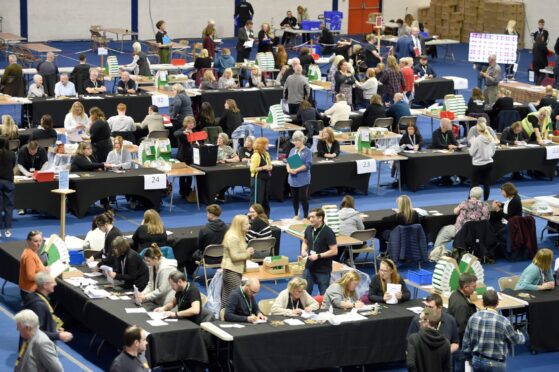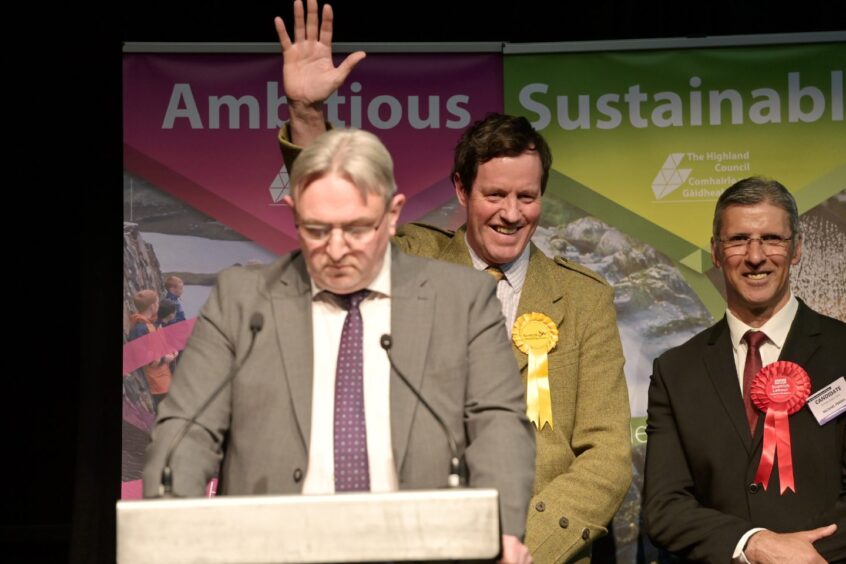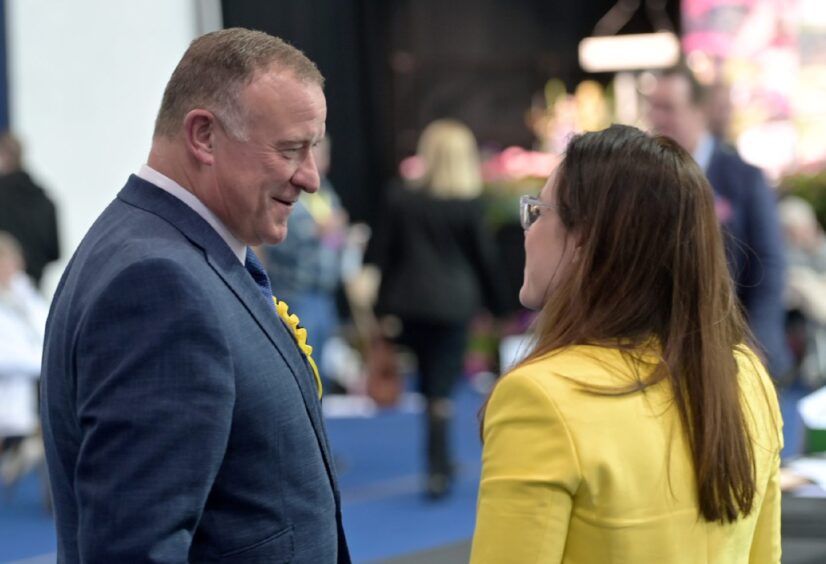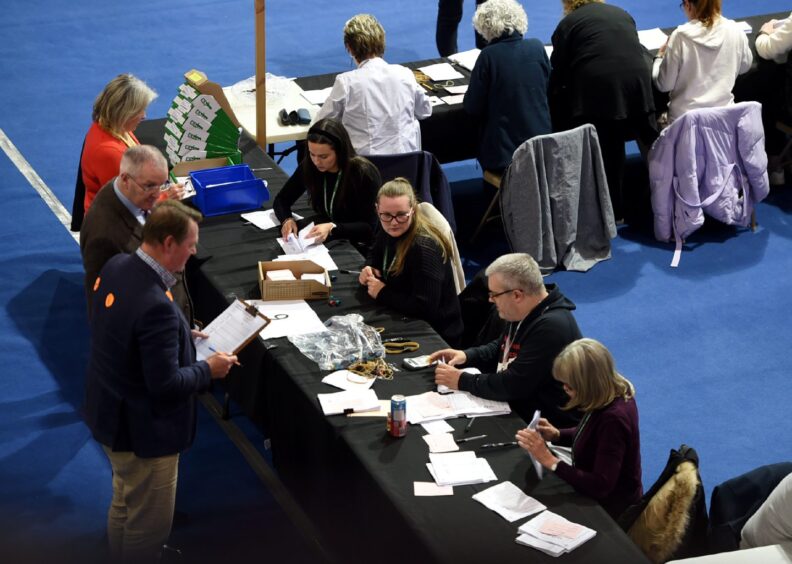The extreme delays suffered at July’s General Election count in Dingwall have been put down to the “distraction, lack of focus and fatigue” of staff, according to Highland Council.
The Inverness, Skye and West Ross-shire count was the last of the UK’s 650 constituencies to declare a result.
It eventually arrived around 6pm on July 6, roughly 44 hours after polls closed.
There had been a recount in the early hours of July 5 and another followed the next day.
The contest was eventually won by the Lib Dems’ Angus MacDonald, who received 18,159 votes.
It was a surprise upset over the SNP’s Drew Hendry, who had been been the Highland capital’s MP since 2015.
Hendry received 15,999 votes.
The margin of victory prompted surprise when it was announced on the Saturday evening as many outsiders assumed the two recounts were needed because the race had been too close to call.
However, returning officer Derek Brown had earlier stated the delay was due to a “discrepancy between the verified votes total and the provisional number of counted votes”.
Why was the Inverness, Skye and West Ross-Shire result delayed?
The counts for Inverness, Skye and West Ross-Shire and Caithness, Sutherland and Easter Ross both took place at the Highland Football Academy in Dingwall.
But there no were issues with the latter, as Lib Dem Jamie Stone was declared the winner around 4am on July 5.
The reason why that discrepancy surfaced has never been disclosed by either the council or the Electoral Commission.
But it has now emerged that the local authority believes it was down to the “lack of focus” of individual counters.
Documents obtained by the Press and Journal through a Freedom of Information request show that the Electoral Commission contacted Highland Council asking for an explanation on July 23.
A commission employee said: “Now the dust has settled a little, we are working through the review and recording of issues that arose during [the election].
“We need to better understand what the process was that triggered the recount(s) in Inverness, Skye and West Ross-shire, and the discrepancy between the counted and verified totals.
“I understand you and the team have now had time to investigate and review the underlying process issue that caused the discrepancy leading to the recount.”
Third count proceeded at slow pace
Two days later, a council official replied saying: “The first point to be made is that the same process was to be adopted across both Highland constituencies.
“One count was delivered successfully. It is clear that differential human behaviour and interactions must have led to issues in the count for the Inverness, Skye and West Ross-shire constituency.
“It is all but impossible to identify with confidence what led to the errors and it seems plausible that a number of factors including distraction, lack of focus and ultimately fatigue contributed over the course of an extremely busy evening.”
The first count resulted in a difference of 451 between verified votes and counted votes.
After the second count the difference was drastically reduced – but there was still a difference of 25.
The council official said of the second count: “There was no explanation for the continuing shortfall.”
The third count proceeded on July 6 at a much slower pace.
By this point, it had been more than 24 hours since Keir Starmer addressed the UK as the new prime minister outside Downing Street.
Drew Hendry had also conceded defeat before the final result was announced, acknowledging that Angus MacDonald’s lead was not going to be affected by the discrepancy.
What happens next?
In the final section of Highland Council’s response to the Electoral Commission, the official outlined how it would avoid this happening again in the future.
They said: “As part of this review, an improvement plan will be established with all of the actions incorporated into the delivery of future elections.
“It is also an appropriate opportunity to review the continuing suitability of the count model deployed in Highland.
“Work will be undertaken to evaluate alternative count models including the one known as ‘mini-counts’.”
A council spokesman said a review into the election count was still ongoing.
They declined to comment any further.
The Electoral Commission is due to publish its review of July’s General Election in the near future.
However, it will cover the overall delivery of the election and may not necessarily report on individual constituencies.
A spokeswoman for the Electoral Commission said: “We remain in contact with the returning officer at Highland Council to provide advice and support on their review of count procedures so that voters, candidates and campaigners can have confidence in the process.”
For more Inverness news and updates visit our dedicated page and join our local Facebook group.




Conversation